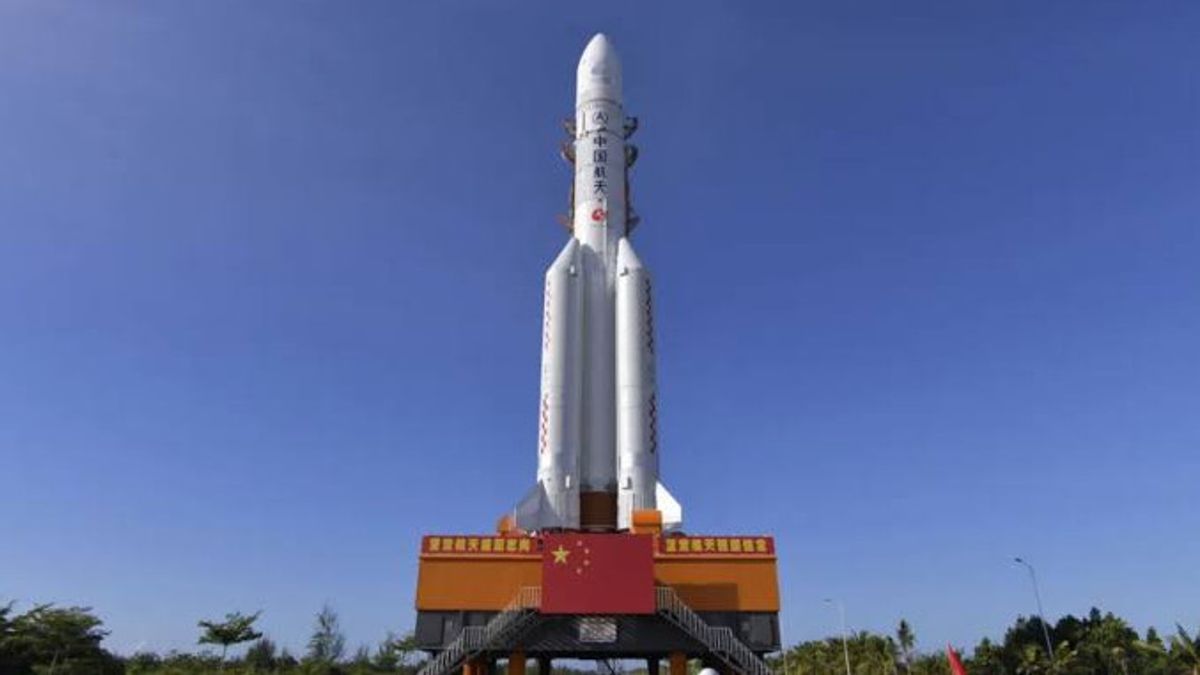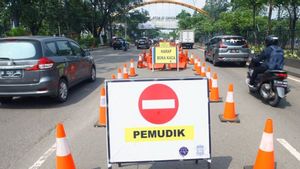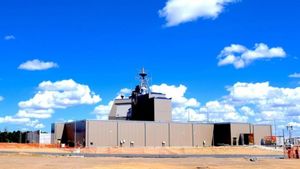JAKARTA - China's Long March rocket is rumored to fall to Earth this week. Of course, all that's left is the rocket debris, but is that dangerous for us?
As reported by The Verge, Sunday, May 9, it was reported that the rocket launched at the end of April on a mission to launch the first piece of Beijing's new space station, China, has a height of 100 feet and weighs 22 metric tons.
However, according to the analysis, the debris of the Chinese Long March 5B rocket, it seems, does not need to worry the inhabitants of Earth, because the rocket wreck is also expected to fall into the sea.
"Most of the Earth is covered in water, so there is almost no risk," said the founder of the Space Security Coalition, Dan Oltrogge.
Oltrogge added that if the fall on land does not rule out the fall of the rocket will have an impact on the Earth, although very low, "But (the impact of the Chinese rocket fall) is much less if it goes to the ocean," he said.
The United States Space Command (US) also said the potential for humans to be impacted by the fall of this rocket was very low. This is because most of the core stages of this rocket do not enter Earth's orbit. Usually, the rocket debris will fall into the sea, right after launch.
SEE ALSO:
Rockets for the Chinese Space Station Mission
It is known, China's Long March 5B rocket has a unique design, placing the entire first stage into low-Earth orbit to deliver payloads. This rocket carries a Tianhe module weighing 22.5 metric tons.
Later, the module will serve as a residence for China's new space station in the next few years. This Chinese rocket has orbited Earth diagonally at a tilt of 41.5 degrees (or tilt) from the equator.
This means that it has crossed large swaths of the Earth as far south as Chile and the top half of New Zealand, or it could fall around the northern regions of New York and Madrid. However, most of the orbital swaths cover international waters, suggesting re-entry into small populated areas.
"It is unlikely that a human being hit by this rocket. Call it a very low risk," explained Oltrogge.
Predicted to Fall in the Australian Sea
As reported from News Au, the Long March 5B rocket belonging to China that fell to Earth is predicted to get closer to Australia. The European Space Agency has confirmed China's Long March 5B rocket has fallen into low Earth orbit.
On Sunday morning local time, the rocket was predicted to be over the Pacific Ocean, 24 minutes earlier than the previous report. The US space research organization, Aerospace Corporation, has predicted that the Chinese rocket will re-enter Earth's atmosphere around 3 a.m. on Sunday Greenwich Mean time, which will be 1 p.m. AEST.
The current trajectory places space debris in the Pacific ocean between Peru on the west coast of South America and Hao in French Polynesia, just north of Easter Island and south of Mexico.
Unfortunately, these projections are very uncertain. Australian scientist Dr. Fabian Zander from the University of South Queensland's Institute of Advanced Engineering and Space Science insists there is no way to be sure where the rocket will land.
“The short answer is we don't really know where it will go down. Our best estimates are currently heading for the Indian Ocean, so it's somewhere between Africa and Australia. And that will probably happen tomorrow around midday AEST," said Zander.
Most likely, some rockets will burn before they reach the Earth's surface, but not all rocket bodies will experience this.
The English, Chinese, Japanese, Arabic, and French versions are automatically generated by the AI. So there may still be inaccuracies in translating, please always see Indonesian as our main language. (system supported by DigitalSiber.id)


















